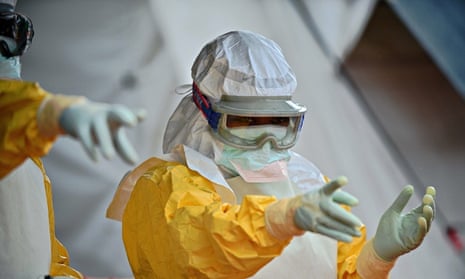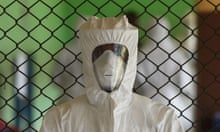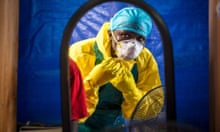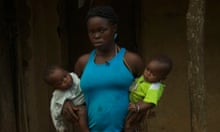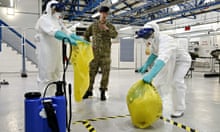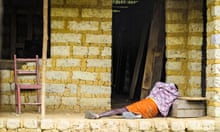Trials of a device that can diagnose an Ebola infection within 15 minutes are about to start in Guinea. The test, which can analyse blood or saliva, is six times faster than those currently used in west Africa.
Faster results mean people who are infected can be moved into isolation more quickly and receive treatment earlier, which may improve their survival chances.
Dr Val Snewin, of the Wellcome Trust, which is funding development and trials of the device, said: “A reliable 15-minute test that can confirm cases of Ebola would be a key tool for effective management of the outbreak, allowing patients to be identified, isolated and cared for as soon as possible. It not only gives patients a better chance of survival, but it prevents transmission of the virus to other people.
“This pilot study is particularly promising because researchers have considered how to make the test suitable for use in remote field hospitals, where resources – such as electricity and cold storage – are often in short supply.”
The device will be tested at an Ebola treatment centre in Conakry, the capital of Guinea. Researchers will use a “mobile suitcase laboratory” which includes a solar panel, power pack and results reader that is the size of a small laptop.
The reagents used in the test are available as dried pellets, which means they can be used and transported at room temperature. Similarly to the tests currently in use, the new test detects the genetic material of the virus. The pilot will test whether the reagents are safe and effective to use with Ebola patients’ blood and saliva samples.
The project is one of six jointly funded by Wellcome and the UK’s Department for International Development in a £6.5m initiative called Research for Health in Humanitarian Crises.
Among the five other projects that have been funded by the same initiative is another diagnostic device, developed by the University of Westminster, that can be used away from hospital labs in villages. The objective is to test bodily fluids for Ebola and deliver a result within 40 minutes.
Other projects include predicting the spread of disease so that resources can be moved to health centres most likely to see a surge of new cases, and modelling the epidemic to work out how many cases and deaths might be expected over time.
François Hollande, the French president, arrived in Guinea on Friday – the first western leader to visit a country that has been hard hit by this year’s outbreaks.
“There is hope: the hope of those who have been cured. The hope that we can control this epidemic ... The very fact that hope exists,” said Hollande, who during his roughly eight-hour visit was to tour a treatment centre at the capital’s main hospital and meet French health workers.
